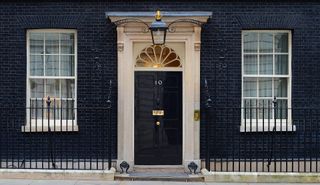Labour 'to help local government go digital'
Shadow Cabinet Office minister Chi Onwurah promises more digitally-skilled civil servants if party wins power

A Labour government should help councils digitise services by expanding the role of the Government Digital Service (GDS), according to a report commissioned by the party.
The Making Digital Government Work for Everyone report was released today after being commissioned by shadow Cabinet Office minister Chi Onwurah last December, and will be taken into account when the Labour party creates its 2015 election manifesto.
Local government
It recommends expanding the remit of the Whitehall-centric GDS to include local government, estimating savings of more than 50 million.
The review also suggests improving collaboration between local and central government digital experts, and sharing best practice between councils implementing digital services.
Speaking at the review's launch last night, Onwurah said: "Many local authorities can't run digital and it's not appropriate that they should be expected to succeed where government departments with far higher budgets have failed.
"So the argument of increasing collaboration and re-use so all authorities can benefit from the scale of the sector as a whole, that is also very welcome."
Get the ITPro. daily newsletter
Receive our latest news, industry updates, featured resources and more. Sign up today to receive our FREE report on AI cyber crime & security - newly updated for 2024.
She hopes better digital services will help empower citizens, and slammed the Coalition for neglecting the most needy in society, which she claimed make up 20 per cent of the population.
"GDS is a hugely experienced and talented group within the Cabinet Office. Ministers have been focused on high quality digital services which can only be used by 80 per cent of the population, rather than building more valuable services that can be used by everyone," she said.
"That would help with some of this government's biggest challenges, including planning, housing, health and social care."
Procurement
The review would see government IT procurement simplified by building a common platform based on open standards, increasing re-use and cutting costs across the public sector.
The government's annual procurement strategy would be published to improve transparency and let suppliers know what requirements are, while it would focus on new, smaller suppliers able to deliver on smaller contracts.
That is similar to the government procurement strategy pushed forward under Cabinet Office minister Francis Maude, and rather than wiping the slate clean, the review recommends Labour build on current frameworks.
Two identified are the cloud service procurement framework G-Cloud, and the Digital Marketplace.
Labour would aim to increase take up of commodity cloud services and work harder to make off-premise offerings a more attractive prospect to organisations outside Whitehall.
Open data
Onwurah denounced the government's approach to data sharing as "chaotic", following the revelation that ministers' aim to link thousands of databases used by schools, councils, emergency services and more.
Instead, she wants people to own their own public data.
"Labour in government will build on that to establish a coherent and ethical approach to the use of data in government," she claimed.
The review believes the UK should have an open, authoritative and definitive address dataset by 2021, believing it will improve public and private services access to citizens.
It also recommends a future government should provide "a clear, easy to use method for requesting open data and should certify all open datasets to an equivalent level by the end of the next parliament."
Digital training
Onwurah is adamant on the subject of helping more civil servants develop digital skills.
"The digital revolution can't be confined to certain departments in Whitehall," she said. "All government will be digital government in future."
The review recommends providing five days of digital training to all civil servants during the next Parliament, and supporting frontline workers to become digital champions'.
The review was written by more than 20 voluntary advisors, who considered around 2,200 responses from companies, citizens, interest groups and more.




